An ingrown toenail is like being bitten by a mosquito.
It hurts, causes a lot of swelling, and looks nasty.
However, unlike a mosquito bite, you can treat an ingrown toenail at home.
Our fingernails and toenails are parts of our hands and feet that constantly grow throughout our lifetime, but they can cause pain when too long.
Ingrown toenails form when bacteria grow under the nail and causing it to grow curved and infected.
So naturally, nobody likes having ingrown toenails.
Whether they're caused by shoes that don't fit right or by ingrown nails from wearing flip-flops all the time, they're not pretty.
The good news is that there are some excellent home remedies for ingrown toenails that can be highly effective.
Hopefully, you won't need a podiatrist to fix any ingrown nails with these simple remedies.
What are the causes of ingrown toenails?
There are many causes of ingrown toenails.
The most common cause is improperly fitting shoes; tight shoes.
Ingrown toenails form when a nail grows into the skin instead of above it.
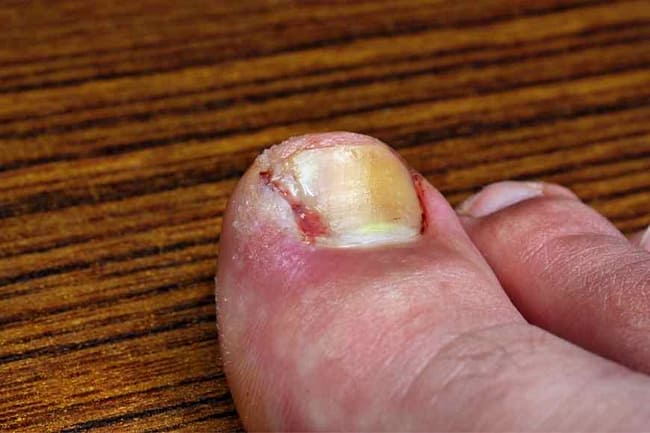
Shoes that are too tight will pull the toes towards the toe box, causing them to press into the nail bed and prevent it from separating from the skin.
A nail can grow into the skin's moisture chamber and cause inflammation, pain, and infection if not treated promptly.
People wearing flip-flops or sandals for extended periods, especially without socks or shoes, are also prone to getting ingrown nails on their big toes.
Sometimes the cause can be as simple as genetics.
Some of us are just more prone than others.
What are the symptoms of an ingrown toenail?
Symptoms of an ingrown toenail will vary from mild to severe depending on the length of time the ingrown toenail exists and the severity of the infection.
However, some common symptoms are swelling of the toe.
In addition, the toe may be red, sore, or even look bruised.
In more severe cases, the skin around the nail of the toe becomes inflamed, swollen, or infected.
Your toe may also feel hot to the touch or ooze pus or fluid and swell up. Some of the most common are:
- Pain and tenderness
- Inflamed skin
- Swelling
- Infection
These symptoms will depend mainly on the severity of the nail's growth into the toe.
If left untreated, an ingrown toenail can become severe and take longer to heal.
Also, it can lead to severe complications such as an infection in the toe or even the bloodstream if not treated promptly.
A podiatrist may need to cut the nail back to relieve the pain in some extreme cases.
How to prevent ingrown toenails from developing?
You can do some simple things to prevent ingrown toenails from developing.
For starters, never cut your toenails too short, and always make sure your shoes fit correctly.
Also, always trim your nails straight across regularly and use an antiseptic product like Dial Antiseptic Foot Soak after you've cut your nails to help prevent ingrown toenails from developing.
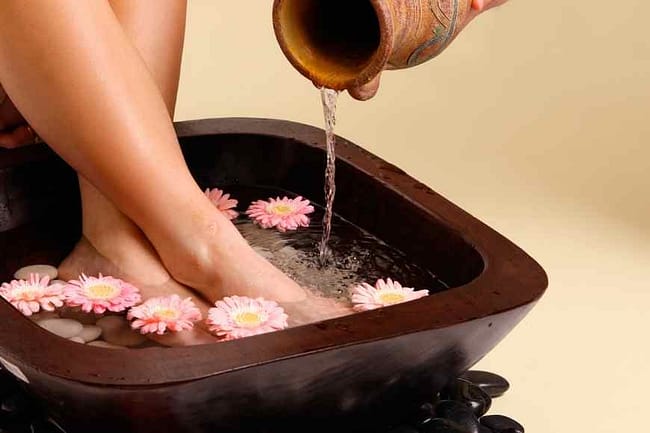
Here are some specific prevention measures you can do to prevent an ingrown toenail:
- Keep your toe clean and dry
- Use an antiseptic product after trimming your toenails to help keep.
- Try to keep your toenail at a medium height
- Check your feet regularly
- Let your feet air out often
- See that you have enough iron and protein in your diet.
Some other things you can do is to use talcum powder or corn starch sparingly on dry areas to keep your feet dry and healthy.
Also, avoid wearing tight shoes and socks that cut off circulation. In some cases, people find themselves more prone to ingrown toenails than others.
Experts believe that this could be because some people are genetically predisposed to getting ingrown toenails.
How to treat an ingrown toenail at home?
Here is a list of ten home remedies for ingrown toenails.
1. Soaking in Epsom Salts.
Epsom salts have tons of health benefits and can be quite helpful in treating ingrown toenails, too!
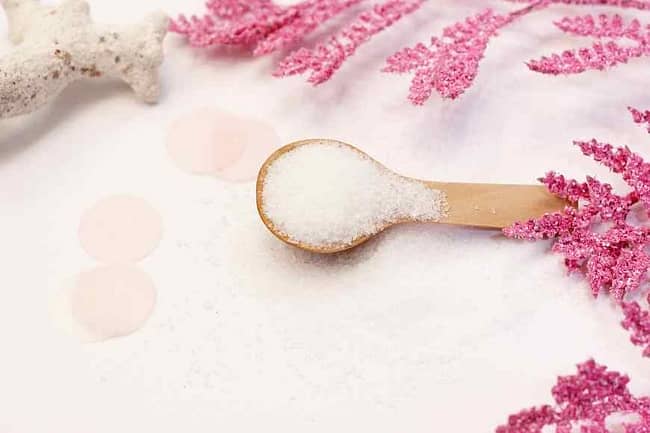
Epsom salts have anti-inflammatory properties that can help reduce any swelling around the nail and around the nail bed if it's infected.
These salts are also rich in magnesium, which can help any inflammation decrease and ease any discomforts resulting from ingrown toenails.
2. Use a Tea Tree Oil.
Tea tree oil is one of the most effective home remedies for ingrown toenails.
Tea tree oil has natural antiseptic properties that can help alleviate some of the pain and discomfort associated with an ingrown toenail.
Just add a few drops of this oil to a bowl of warm water and soak your feet for 20 minutes.
This can be done up to three times a day if needed and can definitely help alleviate some of the pain associated with an ingrown toenail
3. Apple Cider Vinegar Soak
Another effective remedy is apple cider vinegar.

Apple cider vinegar has a high amount of acidity that can help kill bacteria and other microbes and reduce the infection.
You can try soaking your feet in a warm foot tub with apple cider vinegar for 20 minutes up to three times a day.
4. Soak in Warm Soapy Water
Soaking with warm soapy water can also help get rid of an ingrown toenail.
Soaking your feet in warm water with a small amount of mild soap can also help soften the nail to increase the possibility of it growing back straight naturally.
If you do this twice a day for a few days, you can increase the chances of the nail growing back straight on its own.
5. Peroxide.
Peroxide is another home remedy you can try to cure an ingrown toenail.
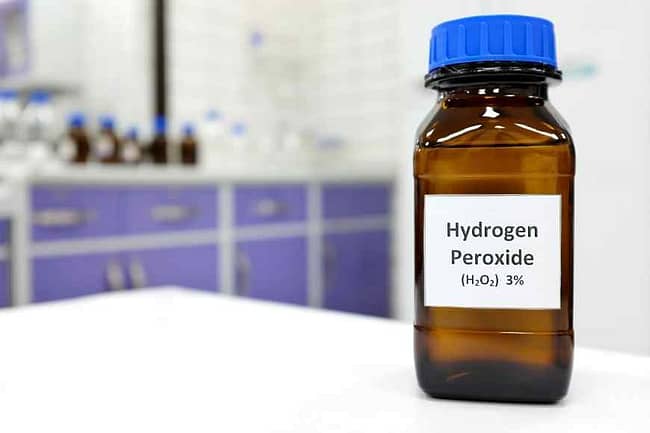
Simply soak a cotton ball in peroxide and hold it against the infected area for several seconds.
Do this twice a day or until the nail grows out straight on its own.
You can also add some peroxide to a foot bath.
6. Packing With Dental Floss or Cotton.
To promote healthy nail growth and prevent an ingrown toenail, try tucking small pieces of cotton or waxed dental floss under the edge of the affected nail.
Make sure you first soak them in alcohol to clean off any bacteria to reduce the risk of infection.
7. Antibacterial Ointment
Antibacterial Ointment reduces the risk of infection by killing bacteria on internal skin tissue surrounding the infected nail and on the nail itself.
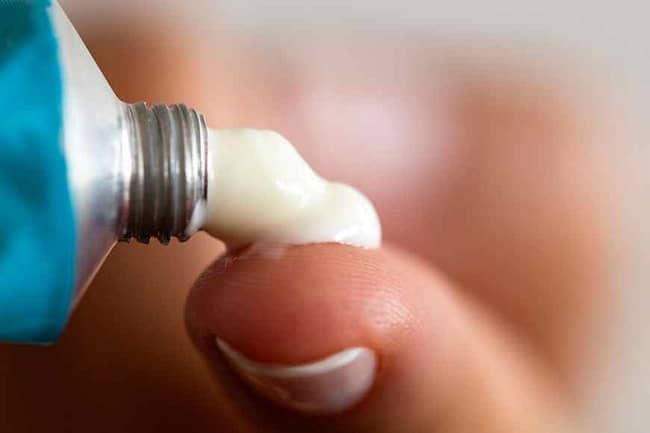
Apply a tiny amount of antibiotic Ointment directly on top of the infected tissue and nail every night before bed until the infection decreases.
Before you apply the Ointment, make sure you trim your nails carefully.
8. Apply Ice Pack
Whenever possible, applying an ice pack to the infected area can help reduce inflammation and swelling around the infected area.
You can use an over-the-counter ice pack or a bag of frozen peas wrapped in a towel.
9. Toe Braces/Protector
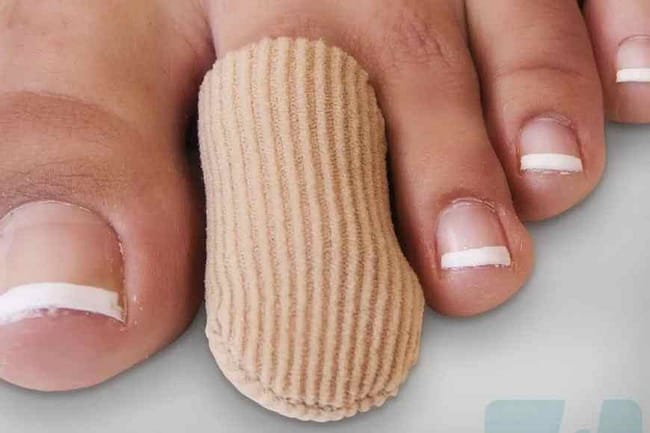
Toe braces or toe-protectors work well, and they create a space for the toe to move freely in, preventing an ingrown toenail from developing around the sore skin surrounding it.
You can buy them at your local drugstore or pharmacy and online or through an online retailer.
10. Over the Counter Meds.
Anti-inflammatories, such as ibuprofen and acetaminophen, are often recommended.
These two will help reduce the pain and inflammation associated with an ingrown toenail, but they will not cure the infection on its own.
When to see your DOC?
Obviously, you do not want to neglect an infected ingrown toenail and risk the infection getting worse and spreading to other areas of the foot or beyond the feet as well.
If the ingrown toenail is very painful, swollen, or red, or if you see pus coming out of the toe, you should seek medical attention immediately to prevent an infection from getting worse.
In some cases, home remedies for ingrown toenails will not cure the infection.
Sometimes the doctor will need to perform a minor surgical procedure to remove the ingrown portion of the nail root.
This is mostly done for more severe infections where the nail has penetrated the skin surrounding the toe.
To Sum it UP
One of the main things to remember is to wear shoes that fit correctly and do not constrict your toes too much.
This is one of the leading causes of ingrown toenails in the first place.
Having proper shoes that fit correctly helps prevent ingrown nail problems.
Ingrown toenails can also be a sign of serious underlying health problems, such as an ingrown toenail could be a side effect of certain medical conditions.
If you are prone to getting ingrown nails, you might want to make an appointment with your podiatrist to discuss your condition and see whether there are any other potential underlying health problems.
So, keep your feet clean, and try not to cut into the corners of your nails too much.


